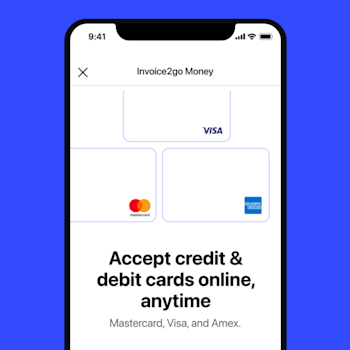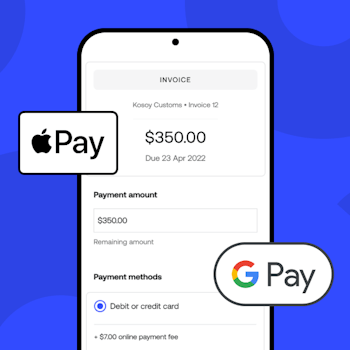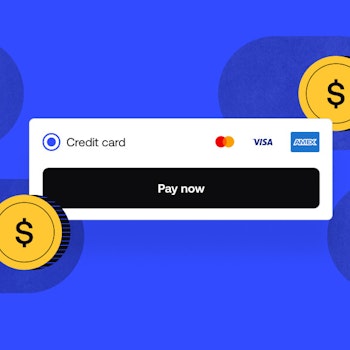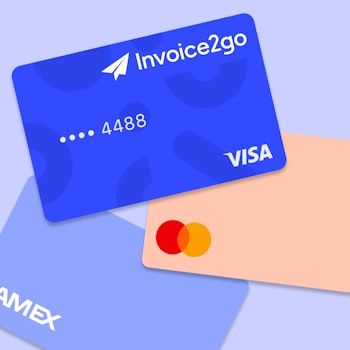
Building a successful business without a college degree - Q&A with Mike Claudio
The value of a college degree has been hotly debated in recent years. While there is plenty of evidence that college grads have more prospects and, on average, earn 67% more than those who have only completed high school, the picture has become more complex.
The cost of education has skyrocketed over the past decades, leaving many people saddled with debt and dissatisfied with job prospects. Many large companies have begun to emphasize experience over education, and some technology founders have cited dropping out of college as pivotal moments in their career success.
We recently sat down with Mike Claudio to talk about building a business without a college degree. Mike attended college for a year but dropped out. Still, he went on to become the founder and CEO of WinRate Consulting, a North Carolina-based service that helps construction businesses increase revenue and profitability.
His communication and sales training has helped numerous businesses to increase sales dramatically. He also hosts the Big Stud Podcast, which provides valuable tips to help contractors identify their target market and close more deals.
Over the past few years, Mike has emerged as a respected leader in his industry whose business continues to grow rapidly. Here’s how he found his path and achieved his goals without formal higher education.
How important was formal higher education in your family?
My dad was the first person in my family that had more than a middle school education. My grandfather was a longshoreman and wanted his son – my dad – to work in an air-conditioned environment. For my grandfather, the only way to get there was to get a college degree.
Both my parents earned advanced degrees and college was the only option growing up. So, after high school, that’s what I did. Things didn’t go well, though – I quickly went from academic probation to academic suspension. I wasn’t in the right mindset to be alone at school and be successful. So, I made the most mature decision I had made up until that point. I looked right at my dad and told him I wasn’t going back.
My parents didn’t understand my choice at all. My dad and I went through a 3-year rocky period because he was convinced that going back to school was the only way I could have a successful life. But I wasn’t going back.
What did you do after deciding college wasn’t for you?
At 19, I started what turned out to be a 10-year career at Verizon Wireless doing retail management and B2B sales. It was a much better fit for me. I learned so much and consistently won awards for being the top salesperson. By the time I left Verizon, I had Fortune 100 companies as clients and was a top individual contributor.
Then, a buddy of mine did remodeling work but was struggling with sales. I felt I could use the skills I learned at Verizon to help. Even though it was a pay cut, I took over sales, marketing, and estimating for his company. The year before I started there, he did about $300,000 in revenue. In my second year, we scaled up to $2.2 million.
My corporate training served as a solid background in learning how to grow, market, brand, sell, estimate, scale, hire, fire, and manage finances. It was amazing to see the impact of applying that knowledge to my buddy’s business. I started to feel like I had a knack for helping businesses scale.
My buddy told me he was done growing at the end of my second year working for him. I decided to move on and take on a role as Vice President of Sales and Marketing for a roofing company. I had a handful of sales reps and my own client pipeline. With the help of my team, over the next two years, we took the roofing company from $2 million to $5 million in sales. My confidence in my skills continued to grow.
What specific skills helped you grow these companies and eventually start your own business?
My sales training and firsthand experience being at the table with business owners helped me learn how people think and communicate professionally. One of the biggest lessons I learned is essential yet straightforward: I always did what I said I would do.
Here's what many business owners miss. They fail because they’re afraid to set realistic client expectations. They say what they think the client wants to hear instead of the truth. For example, business owners will say, “I’ll have it to you as soon as possible,” when they know they won’t be able to deliver for weeks.
“As soon as possible” is the worst expectation you can set because it’s completely subjective. If you’re booked five weeks out, say so. Customers will feel disappointed and lose trust if they feel like they’ve been misled – even when you have the best intentions.
Being comfortable setting realistic expectations from the start had a massive impact on my career. While some people didn’t like my directness at first, they usually returned. Over time, I built a trustworthy reputation and still get calls from referral partners.
How did you break from working for other people to starting your own business?
I left the roofing company at the end of 2018. Because of the circumstances, I was pushed into coaching other business owners full-time. I set sales targets and believed I could do this for a living and provide for my family. I hit my targets in the first year, which was a huge inspiration.
The realization that I could do it sparked my ambition. I started thinking, “How can I do this bigger?” That optimistic mindset helped me take the next step up the ladder. In 2021, I started a demolition and grading company and a nonprofit. In the first three weeks of launching my nonprofit, I raised $15,000 and was able to buy over 200 pairs of shoes for kids in need.
. . . And now my dad feels like I didn’t make such a terrible decision to not go to college.
What’s the best advice you would give to someone who wants to start a business but isn’t sure about college?
First of all, formal education may not be the road for you, but continual personal development is essential. I am constantly learning, reading, and trying new things.
Don’t be afraid to ask for feedback and advice – it’s usually free to ask. So many people who don't have a degree get stuck thinking, “Well, I guess this is all I'm supposed to do.” They don't use creativity to advance the value they bring or pursue personal development.
For example, if you're a tradesman, be the best damn one they've ever seen. Eventually, you'll start leading tradespeople. Then, be the best damn leader. Soon enough, you can own a business that has tradespeople. If you're 18 or 19 and see a ceiling on your potential, you’re putting that on yourself. Set goals and envision yourself as the boss. There are plenty of young contractors making multiple six-figure incomes.
Second, if you decide to go to college at some point, get relevant experience while you’re studying – even if that means taking longer to graduate. College is so expensive that it’s crazy to take on debt to accept a low salary or job you dislike. Professional experience to go with your education increases your chances of getting a solid job. After school, keep learning. It sucks getting better because you have to get out of your comfort zone. However, if you're comfortable right now, you're probably not growing.
Third, you need support and positive reinforcement. If people don’t understand your dreams and visions, you need to surround yourself with bigger people. Network differently, join a mastermind group or hire a business coach. I still work with a business coach because I want to expand what I believe is possible.
Finally, don’t be afraid to put learning ahead of money – especially early in your career. When I was in my late 20s, helping the remodeling business grow to $2.2 million, I had a $55,000 salary. But what I learned during that time has helped me be on track to do $300,000 in revenue from my coaching business this year.
It sounds like you’ve had a lot of growth and success these past few years. Do you ever struggle with self-doubt?
Absolutely. It’s a common thing. Everybody deals with it. I regularly have moments where I ask myself, “Why am I doing all this? I'm not supposed to be doing all this.” If anybody is struggling with that self-doubt and challenges, I highly suggest educating yourself on imposter syndrome.
The doubts are always there, but I try to lean into them, outwork them, and take care of myself. I hit the gym and read every morning, hang out with my kids, and often make dinner for my family. I connect with friends and business people who understand me and my goals.
What are some of your hopes and goals for the future?
I have a tattoo on my arm of a T.S. Eliot quote. It says, “Only those who will risk going too far can possibly find out how far one can go.” I love that and live by it.
I'm about to hire a few people to help me with my business. I want to break down my processes and make them better. Because I'm an athlete, I like to think of my business like the human body. The only way you grow muscle is to break it down and rebuild it stronger.
So many people are out here trying to innovate and do better in the trades. If you’re resistant to change, they're going to get beat by some 23-year-old kid that is willing to try new things. Maybe they’re 1/10 of the contractor, but they're ready to adapt and use new technology. So, I’m looking to add services, update my approach, and systemize. I’m also continually making videos and building my online presence.
It seems clear that regardless of whether you attend college or go another route, being a life-long learner is an essential contributor to success in business. Mike’s willingness to lean into challenges, offer value to others, and take calculated risks has helped him reach career success without a college education.
What are your thoughts on success without a college degree? Join our community of small business owners and join the conversation. Each week, we share valuable tips to support the success of business owners from all backgrounds.
Related Articles

How to accept credit card payments on Invoice2go in 3 simple steps

Accept payments online via Apple Pay and Google Pay

Must-not-miss write-offs as you wrap up 2022 year-end finances

5 ways accepting credit and debit card payments helps your business stay resilient

4 easy ways to increase cash flow today

What is Small Business Saturday and why is it important?
The features and surprising benefits of a well-designed packing slip
